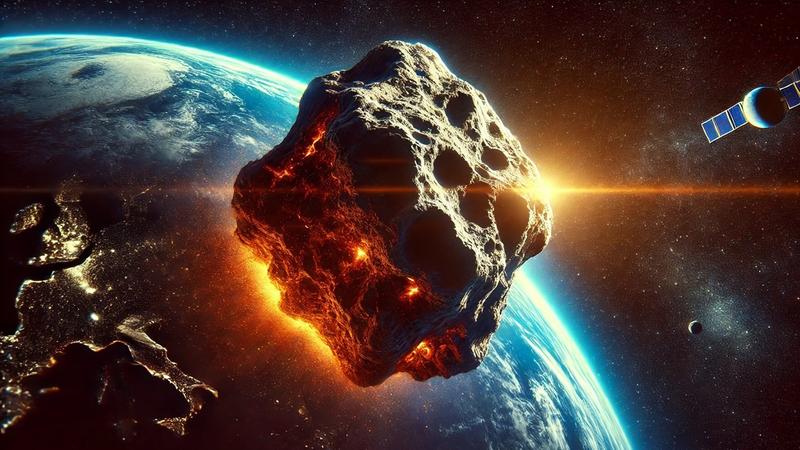Published 10:56 IST, November 13th 2024
NASA on High Alert as ‘God of Chaos’ Asteroid Apophis Approaches Earth
NASA has issued an alert for November 13 as asteroid 99942 Apophis, ominously nicknamed the “God of Chaos,” makes its closest pass by Earth.

Washington: The National Aeronautics and Space Administration (NASA) has issued an alert for November 13 as asteroid 99942 Apophis, ominously nicknamed the “God of Chaos,” makes its closest pass by Earth. Measuring approximately 450 meters long and 170 meters wide, the massive asteroid has drawn international attention due to the hypothetical destruction it could cause if it ever collided with Earth.
Although scientists have confirmed that Apophis will pass at a safe distance of 19,000 miles (31,000 kilometers) from Earth, the sheer proximity and size of the asteroid make it a prime subject for continued monitoring and research. NASA’s Near-Earth Object Studies Center has tracked Apophis since its discovery in 2004, ensuring that it poses no immediate threat of collision for at least the next two centuries.
The Impact Potential and Threat of Apophis
Apophis, roughly the size of New York’s Empire State Building, could theoretically unleash an explosive force equivalent to hundreds of nuclear bombs upon impact. Such a collision would trigger shockwaves capable of flattening entire forests, obliterating urban areas, and creating tsunamis if it struck an ocean. Though Earth has faced asteroid impacts throughout history, a collision with Apophis would rank among the most devastating events due to its size and speed.
Apophis’s close pass, while safely outside Earth’s atmosphere, allows scientists to study its physical characteristics and interactions with Earth’s gravitational field. Researchers, including asteroid scientist Ronald-Louis Ballouz, have noted the possibility of “astroquakes,” or minor shifts in the asteroid’s structure due to gravitational forces during its approach. Understanding these subtle movements will aid scientists in tracking Apophis’s future orbits and assessing any long-term collision risks.
Apophis’s 2029 Flyby and Planetary Defense Efforts
Though Apophis poses no immediate threat, its future orbits remain a topic of great interest. In 2029, Apophis will pass close enough to Earth to be visible to the naked eye, falling within the range of geostationary orbit. This anticipated event will likely captivate the public while providing scientists with a rare chance to study an asteroid of this size up close.
NASA’s Center for Near-Earth Object Studies (CNEOS) continues to monitor Apophis as part of broader efforts in planetary defense. Governments worldwide have invested in early detection and tracking systems to address potential asteroid threats. With Apophis as a focal point, these systems emphasize the importance of preparing for possible deflection missions should a near-Earth object’s trajectory pose a direct risk in the future.
As Apophis approaches, scientists aim to deepen their understanding of asteroid dynamics and enhance Earth’s defenses against potential space threats. Apophis’s close encounter with Earth on November 13 serves as a powerful reminder of the vast, unpredictable universe beyond Earth and the need for vigilant observation and preparedness.
Updated 10:56 IST, November 13th 2024



